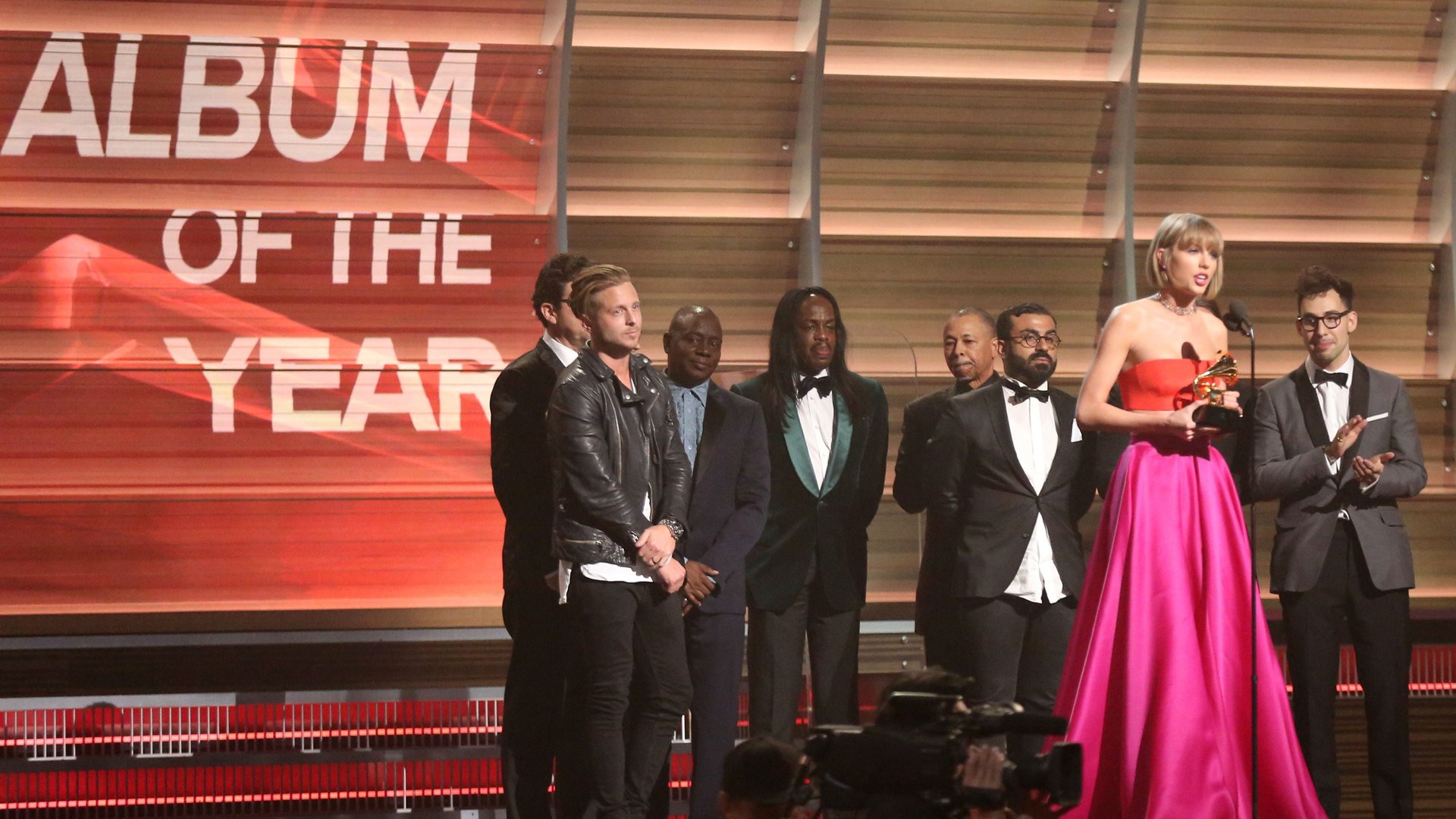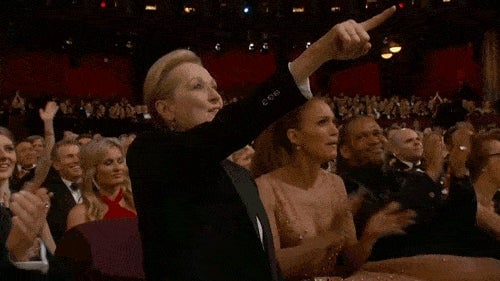The images of Taylor Swift’s Grammys speech say even more than she did about gender inequality
US pop star Taylor Swift won the 2016 Grammy Award for best album for her record-breaking release, 1989. In doing so she has become the first woman in the history of the Grammys to win the award twice (in 2010 she was awarded the accolade for her album, Fearless).


US pop star Taylor Swift won the 2016 Grammy Award for best album for her record-breaking release, 1989. In doing so she has become the first woman in the history of the Grammys to win the award twice (in 2010 she was awarded the accolade for her album, Fearless).
Swift pointed this achievement out in her straightforward acceptance speech, which she dedicated to young women:
I want to say to all women out there that there are going to be people out there who will try to undercut your success, or take credit for your accomplishment, or your fame, but if you focus on the work, and you don’t let those people sidetrack you, one day you’ll get where you’re going, and you’ll look around and you will know that it was you, and the people who love you who put you there, and that will be the greatest feeling in the world.
Women in the audience nodded and showed agreement, as typically happens whenever a woman dares say it like it is at a huge public ceremony—remember Meryl Streep and Jennifer Lopez cheering on Patricia Arquette at the Oscars?

After Swift’s speech, commentators were quick to suggest the pop star was making a reference to Kanye West, who raps the following in one of the songs on his latest album, The Life of Pablo:
I feel like me and Taylor might still have sex
Why? I made that bitch famous
West’s lyrics likely refer to his interrupting the VMAs in 2009 to contest Swift’s victory of best video by a female artist.
Sure, there is a feud going on between the two. But to reduce Swift’s speech to a rebuttal to West’s misogyny is truly diminishing. To see just how far-reaching her statement is, you only have to look at images of her receiving her award surrounded by her team (who she thanked later in the speech).
They are all men.
The visual is perhaps even more striking than her words, and it encapsulates not only how difficult it still is for women to climb to the top, but how alone the ones who make it up there are. Swift’s speech is only slightly different from what Kate Winslet said after she won a BAFTA Award just a few days earlier. Talking about how, at 14, she was given the recommendation to settle for “the fat girl part” she said:
Any young woman who has ever been put down by a teacher or a friend or even a parent, just don’t listen to any of it.
Swift and Winslet are ultimately saying the same thing: That it’s not just that there aren’t as many opportunities for women, but that there aren’t enough allies—and too many people are quick to discourage women or take away from their achievements. More and more women are making it to the top, but they are the outliers, still, not an organic representation of more women becoming increasingly more powerful.
Swift’s acceptance speech images perfectly portray a lonely climb: a woman in a sea of men.